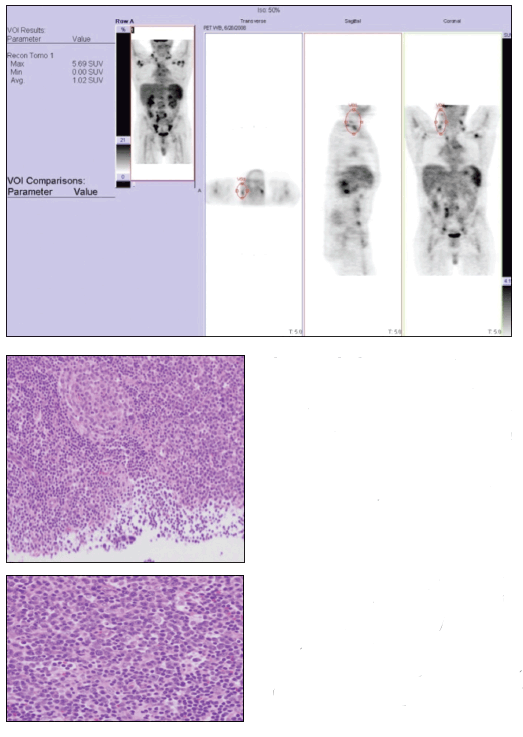Article
Lymphadenopathy and Constitutional Symptoms in a 49-Year-Old Man
A 49-year-old African American man was referred to rheumatology with a positive antinuclear antibodies (ANA) test result, constitutional symptoms, and lymphadenopathy.

A 49-year-old African American man was referred to rheumatology with a positive antinuclear antibodies (ANA) test result, constitutional symptoms, and lymphadenopathy. He presented with unintentional weight loss, low-grade fever, night sweats, and malaise. The patient also complained of pain in several joints and a history of minimal sun exposure that caused a painful rash.
The physical examination revealed that the patient had a low-grade fever, with a temperature of 37.7ºC (99.9ºF). His weight was 205 lb, down from 235 lb 6 months earlier. Widespread lymphadenopathy was found in the cervical, supraclavicular, axillary, and inguinal regions. Findings from the remainder of the examination were unremarkable, with no synovitis or rash. Laboratory findings included positive results for ANA (1:640, speckled pattern), anti-Smith antibodies, and anti-ribonucleoprotein antibodies; hypocomplementemia; polyclonal hypergammopathy; leukopenia; anemia; and elevated levels of inflammatory markers.
A whole-body positron emission tomography (PET) survey scan (top) demonstrated the diffuse nature of the patient’s lymphadenopathy. A right-sided supraclavicular lymph node excisional biopsy specimen revealed follicular hyperplasia and regressed follicles that were atretic with hyaline-vascular change, with sheets of plasma cells in the interfollicular zones (middle and bottom).
What is your diagnosis?
Learn the cause of this lymphadenopathy, malaise, and rash by clicking here.

Real-World Study Confirms Similar Efficacy of Guselkumab and IL-17i for PsA



